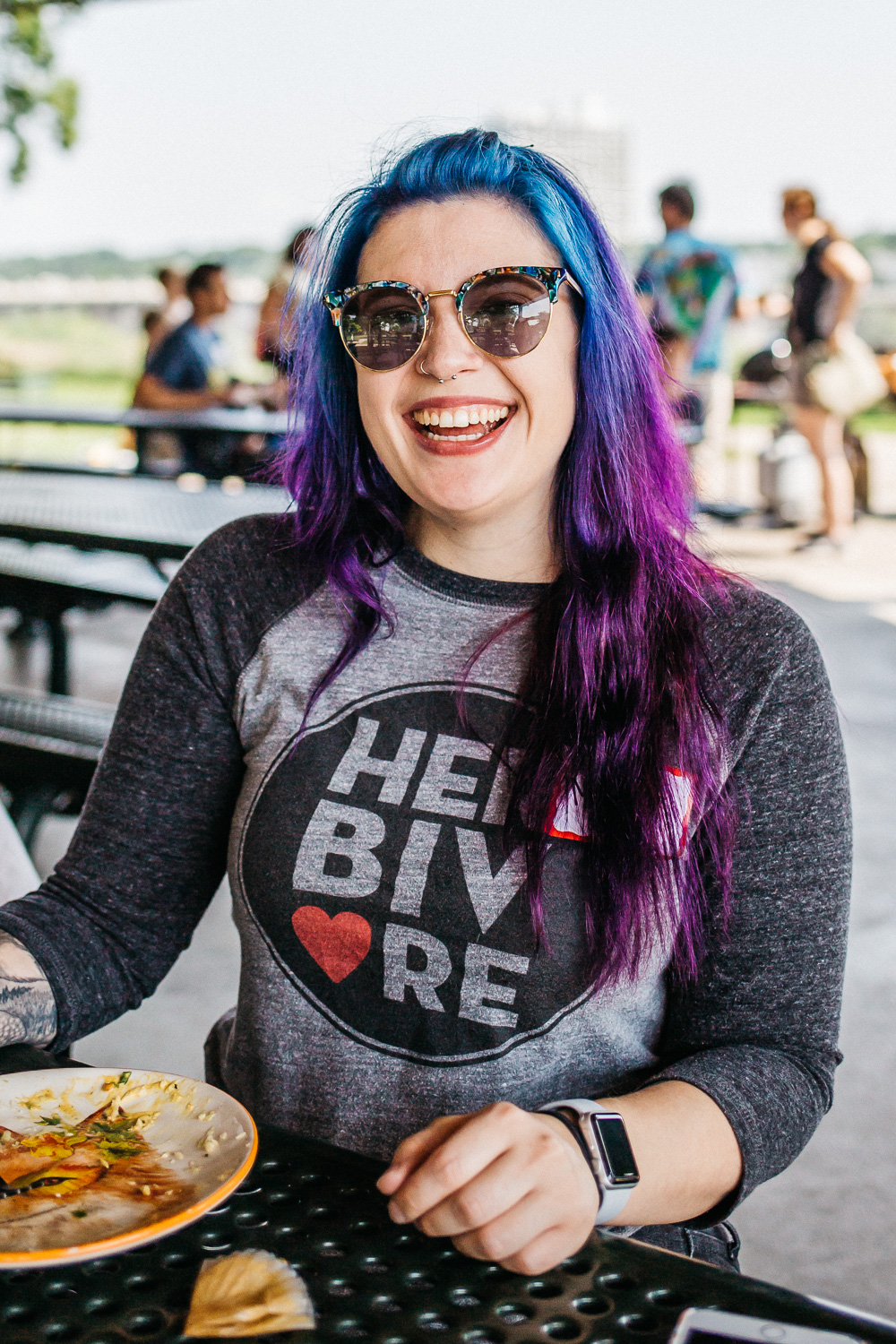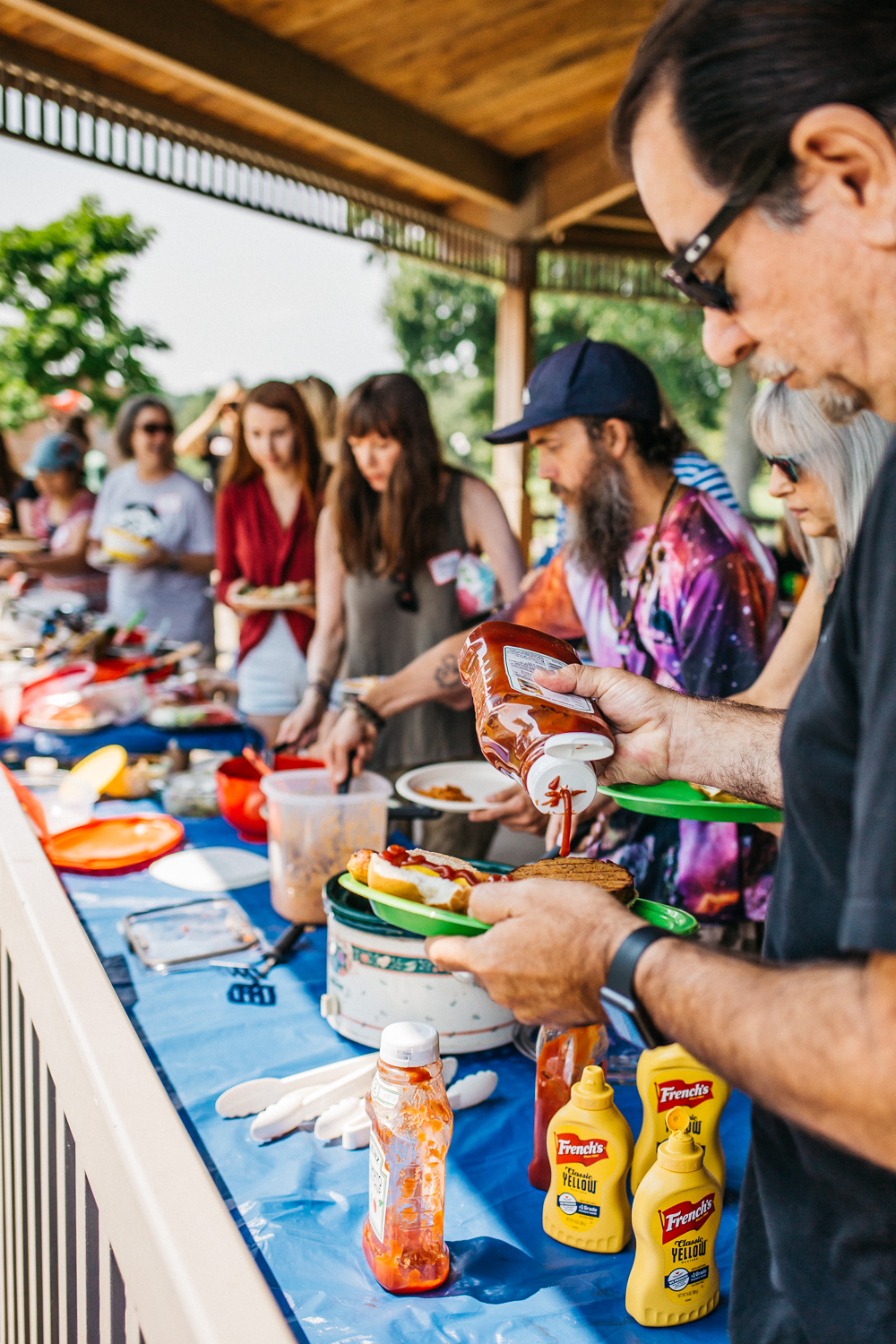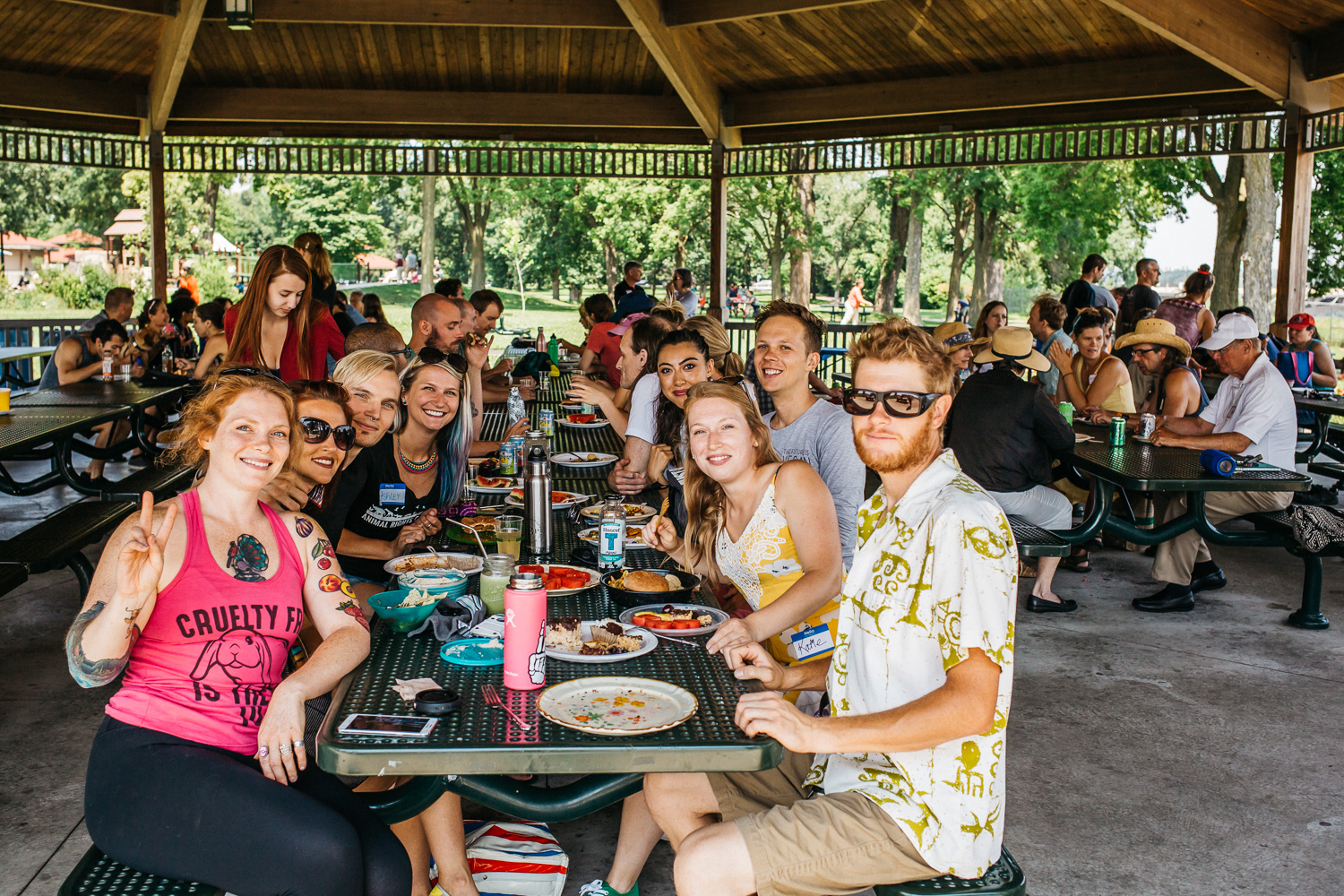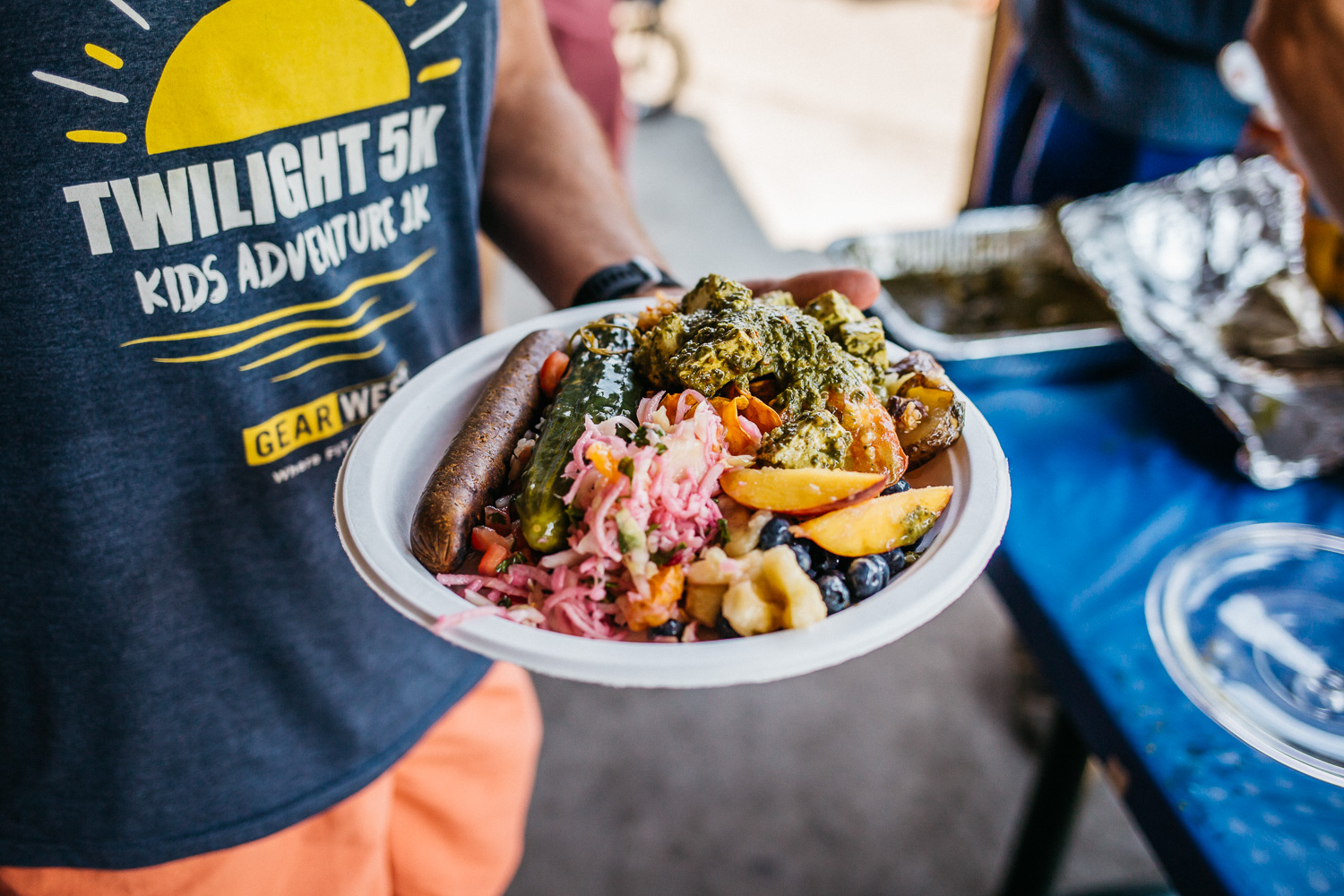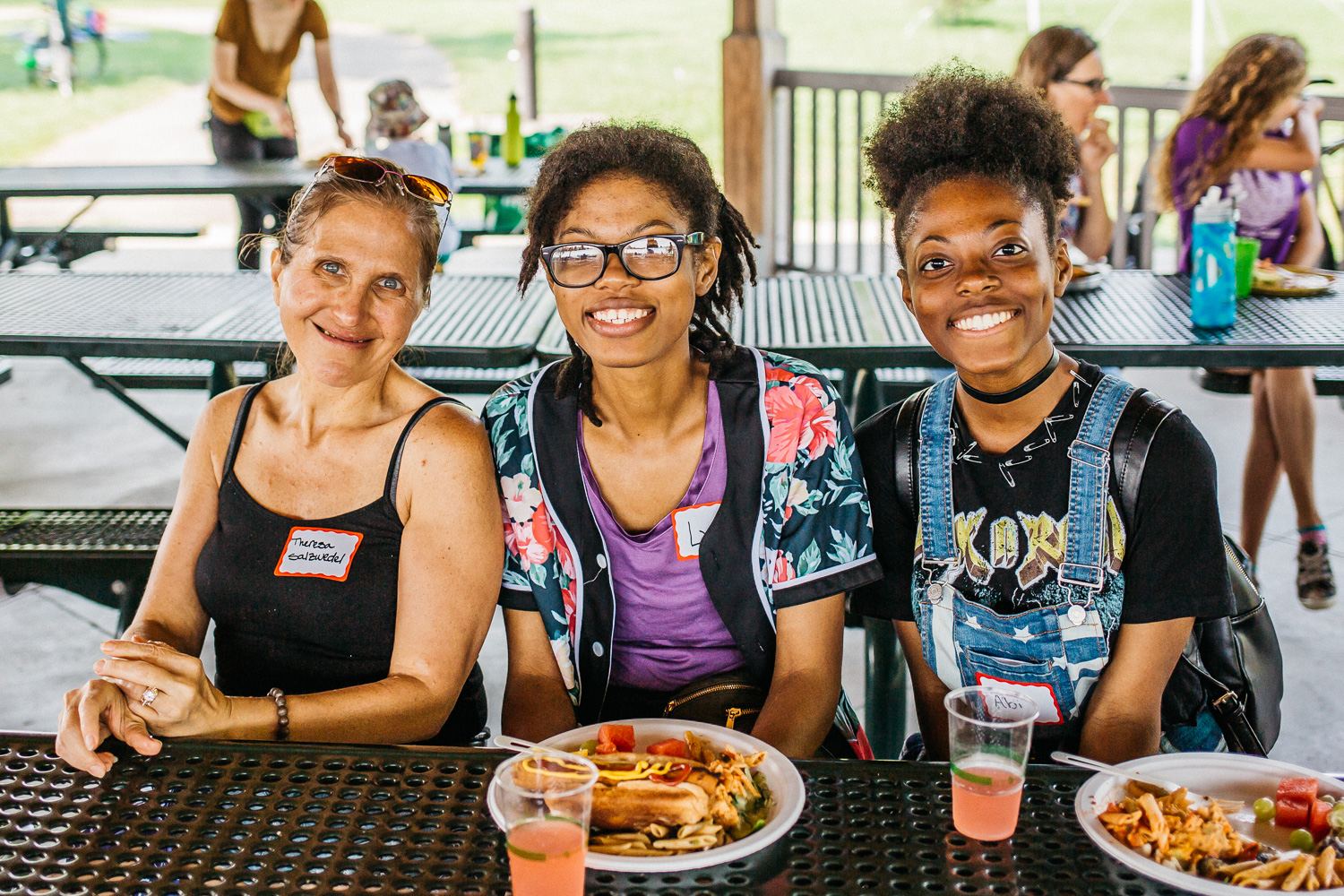You can subscribe to our blog using our RSS feed.
Meet Our New Communications Coordinator!
A couple of weeks ago, Compassionate Action for Animals announced that a new Communications Coordinator had been selected. Emily Nyberg began working with CAA yesterday, September 4th.

Emily initially connected with CAA at several of the events we run and attend around Minneapolis and St. Paul, including Twin Cities Veg Fest and Twin Cities Pride. What struck her about the conversations she had with volunteers at events was the approach CAA uses to help individuals reconsider the impact their consumption habits have on farmed animals, our communities, and the environment.
Emily comes with non-profit and for-profit marketing experience, having interned for a number of non-profits, including Minnesota Opera, Vintage Band Festival, and Sing for Joy, a radio station based in Northfield, MN. While at St. Olaf College, she worked on their Music Entertainment Committee (MEC), a student-run organization that produced music events for the student body. Emily held several positions during her four years on the committee, from Marketing Communications Officer to Committee Coordinator. During her time on the committee, she most enjoyed connecting with other student-led groups to produce unique events for students to experience.
She has spent the past two years on the marketing team at Parsons Electric, an electrical and technologies contractor, where she focused on video and graphics content creation for social media campaigns and sales. One of the video series she produced in 2017 was recognized by the Construction Marketing Association after a successful email outreach campaign, receiving their 2017 CMA STAR award for Video. While at Parsons, she also wrote, designed, and distributed a new internal newsletter that informed employees about what was going on companywide.
“Each organization I’ve worked with has encouraged me to expand professionally and gain new perspectives to approach the way I work to support their mission,” said Emily of her previous work experiences. “I look forward to moving back into non-profit work, being a full-time animal advocate with CAA, and getting more involved with the Twin Cities vegan community.”

Emily was drawn to apply for the Communications Coordinator position by CAA’s continued work towards educating the Twin Cities community about the farming industrial complex and making resources supporting a compassionate, plant-based diet accessible and sustainable for all. She believes it’s important to continue to talk about the animals and “why vegan?” even after committing to a vegan lifestyle in order to continue to strengthen and grow the community.
She is excited to support our community outreach events and potlucks and connect with more CAA volunteers. A large project she plans to start this year is the development of a communications plan for CAA that matches our mission and increases volunteer conversion.
When Emily is not working in support of the animals, you’re likely to find her in the kitchen veganizing different dishes with her boyfriend Hayden, singing, studying herbalism, exploring Minnesota with friends and family, or behind the counter at Healing Elements, a yoga and wellness studio in St. Paul.
We are excited to welcome Emily to the team. She will be at the 2018 Twin Cities Veg Fest and 21+ Veg Fest After Party on September 16. You can meet her there and join our celebration of the growing Twin Cities veg community!
Wholesome Minnesota Update

CAA launched Wholesome Minnesota in January. This exciting new program empowers volunteers to make change for animals through the institutions they’re connected to. Whether it’s a school, hospital, faith community, restaurant, or worksite, almost all of us frequent a place that serves food, and by leveraging our involvement, we can generate more plant-based options in our community.
We held our first Wholesome Minnesota Advocacy Training in January in partnership with the Humane Society of the United States and Forward Food. Nearly 50 volunteers attended, and they went right to work making change at institutions using what they learned.
First, Kacie Mathison spoke with the manager of her workplace insurance incentives programs. After a conversation about the benefits of Meatless Mondays, the manager agreed to implement employee incentive points for those who participate in Meatless Mondays. Way to go, Kacie!
Next, Twin Cities Friends Meeting (Quaker) agreed to provide vegan options after their worship services each Sunday after advocacy from an attendee of the first training.
After that Volunteer Henry Patterson connected CAA with a local catering company preparing more than 20,000 meals daily for charter schools, daycares, and home delivery. After meeting with Wholesome Minnesota leadership,the company agreed to trial vegan meals at a handful of local schools this school year.
In May and June, volunteer Theresa Zingery and program coordinator Julie Knopp made multiple contacts with a suburban school district. The district agreed to serve plant-based meals this coming April for Earth Day.
In July, program coordinator Julie Knopp and executive director Laura Matanah attended the Animal Rights Conference in Los Angeles, gathering new resources to share.
There are two ways you can get involved in Wholesome Minnesota right now to keep this momentum going.
- Register to attend our second Wholesome Minnesota Advocacy Training on Saturday, September 8th at 1:00 pm, co-hosted by the Humane Society of the United States. You’ll even get a free lunch from The Herbivorous Butcher! You can invite friends on Facebook, too.
- Sign up for our volunteer newsletter take part in our growing initiative to get more plant-based options in Twin Cities restaurants. Each week in August, we’re inviting CAA supporters to share a simple, friendly message requesting vegan options at a local restaurant on social media. Just watch for the announcement in our weekly newsletter, and then copy-paste the text and post it to the target restaurant’s Facebook page. By showing local restaurants that a community of consumers is seeking more vegan options, we can inspire institutional change in Minnesota.
For more information or to get involved, email Wholesome Minnesota Program Coordinator Julie Knopp at [email protected].
A New Communications Coordinator!

I’m delighted to share that our hiring committee has selected a new Communications Coordinator: Emily Nyberg!
Emily has strong professional communications experience, including project coordination, writing, social media management, graphic design, and video production. She has also worked with volunteers to organize events.
Emily will begin work September 4. We look forward to telling you more about her in once she’s joined us in September. For now, we wanted to share our excitement about the ways she’ll be able to move our communications strategy forward.
Many thanks to our hiring committee, which included two board members and a volunteer, for their hard work in finding the right person for the job.
The 2018 Kenny Feldman Animal Advocate Award Goes to…
We’re pleased to announce the winner of the 2018 Kenny Feldman Animal Advocate Award.
We’ve created this award to recognize a person, organization, or business in our community whose amazing work is pushing the ball forward for animals. This year, in honor of Compassionate Action for Animal’s 20th anniversary, we’re giving the award to Matt Mackall, Unny Nambudiripad, and Dave Rolsky. All three were founders of CAA and have been critical to the growth of the organization and the animal rights movement, both locally and nationally.


Together Matt, Unny and Dave worked to bring many others to caring about and taking action for animals, just as Kenny Feldman inspired Unny to activism. This can be seen by the way that Compassionate Action for Animals programs, including Twin Cities Veg Fest, are thriving. It can also be seen in the movement for animals that exists in Minnesota today demonstrated by the many organizations and activists who will be present at the festival.

CAA will present Matt, Unny, and Dave with the award at Twin Cities Veg Fest 2018 on September 16 at Harriet. The award presentation will take place in the Farmaste Speaker’s Tent just before the presentation on animal protection from Catskill Farm Sanctuary director Kathy Stevens.
This award honors the memory of animal lover Kenny Feldman. He thought animals were to be cared for and allowed to a live a life with freedom. Kenny was a close friend of Compassionate Action for Animals co-founder and first Executive Director, Unny Nambudiripad. He inspired Unny to become an activist. Sadly, we lost Kenny to suicide 18 years ago. From that tragic loss, we were moved to establish this annual award to acknowledge the contributions of individuals who strive to create a more compassionate world.
The Feldman family wants to thank CAA, Unny Nambudiripad, and current Executive Director Laura Matanah for helping preserve Kenny’s memory and continuing his legacy of being an animal lover and activist in animal rights campaigns. To find out more about Kenny, visit the Remembering Kenny Feldman Facebook page.
We’re Bringing Music and Arts to the Festival!
You asked for more music and arts at Twin Cities Veg Fest, and this year we’re bringing it! You’ll be able to hear a range of musical styles and participate in free interactive arts activities throughout the day. In the evening, we’ll have a 21+ after-party with more live music and a DJ!

Here’s a taste of what you’ll experience: Bryan Schumann will provide live ambient music as background to guided meditations led by Dawn Morningstar and Freeman Wicklund; YaLonda Lolar will sing inspirational music; The Peace Life, a guitar and banjo playing duo, will share original tunes mixed with favorite covers, and The Sunshapes will perform their unique blend of folk/Americana, pop, and classical.
Throughout the festival artist BrieAnna Lindquist will give attendees the opportunity to create screen prints of animals and veggies.
To cap off the day, DJ Wagz will welcome you to our ticketed 21+ after-party where we’ll feature singer-songwriter Mary Bue as well as cabaret diva Mistress Ginger, glamourpuss supreme, who will share popular tunes of classic pop-rock with her band. Tickets will go on sale shortly.
Funding for the equipment, electricity and staffing needed to support these artists is provided by generous donations from people like you. Each $1,000 we raise is being matched by a group of generous donors. Please help us reach our goal of $8,000 by August 25 by making a gift today.
A generous group of volunteers helped to recruit and select this year’s performers. Many thanks to Nathan Gaut, Bryan Schumann, YaLonda Lolar, Ayanna Muata, Mitch Thompson, and Laura Van Zandt for their thoughtful participation.
A full schedule of artists, times, and locations will appear on the Twin Cities Veg Fest website later this month.
Hops & Hearts Event Kicks off $8,000 Festival Fundraising Drive
On July 25, we kicked off our campaign to raise $8,000 for Twin Cities Veg Fest with a fabulous party at Bang Brewing in St. Paul.
Over 85 guests contributed the first $1,200 that we need to raise by August 25. Please join in by making a gift today! Every gift is being matched by a team of generous donors.
Guests enjoyed delicious food from Reverie Mobile Kitchen and heard about the difference that their gifts to support the festival make.
“For many of our thousands of attendees, this is their first and only exposure to animal rights. It’s a chance for them to think, ‘Wow, look at all these people, being vegan isn’t that weird–it’s awesome!’ or ‘Wow, this food is delicious! I can’t believe vegans can eat such good stuff’ or ‘Wow, I didn’t know they did that to animals, that’s not okay.’ It’s experiences like these that ultimately end up saving animal lives,” shared Nathan Gaut, who serves as the chair of this year’s festival committee.
Enjoy the photo slideshow of the event below, and view our progress towards our fundraising goal here.
Community Potluck a Huge Success

The ARC/CAA Vegan potluck at Minnehaha Falls was a smashing success. Over 120 people attended, enjoying great food and conversation.
I love how our potlucks build community. During the event I met brand-new folks who’d never come to a vegan event before and had a wonderful time, saw folks talking together about a variety of animal advocacy work, and got to reconnect with one of my former second-grade students, who is now vegan!
Enjoy photos from the potluck below. I hope to see you at one of our upcoming events!
Leafleting Makes a Difference

“I love seeing people reading the leaflets. Sometimes they’ll come up to me and tell me that they’re been thinking about going vegan, and the leaflet is going to help them actually do it,” said Sarah Matanah, one of the CAA volunteers leading our summer leafleting campaign.
Already this summer, over 4,000 leaflets have been shared with the public. Vegan Outreach, a national organization which provides many of the leaflets we distribute, says that one person goes vegan for every 77 leaflets given away. Every vegan spares thousands of animals over the course of their lifetime.
That means that one volunteer can spare thousands of animals with just an hour of their time distributing leaflets! There are still more leafleting opportunities this summer. You can get the details and sign up here.
“Leafleting is a positive experience. I think people are afraid that people will argue with them, or think they’re being rude by handing out leaflets, but that really doesn’t happen. Most people are interested and happy to get the information,” says Sarah.
After every summer leafleting session volunteers have gone out to eat and get to know each other better. Many volunteers mention this as a highlight.
Leafleting opportunities are chosen based on the ability to reach large numbers of people in a short period. So far this summer CAA staff and volunteers have leafleted at Grand Old Day, the Jazz Festival, The Stone Arch Bridge festival, The Basilica Block Party, the Aquatennial Parade, and the Warped Tour.
Upcoming:
- Leaflet at the Drake Concert – Wednesday, August 1
- Leaflet at the Beyoncé/Jay-Z concert – Wednesday, August 8
- Leaflet at the Cat Video Festival – Wednesday, August 8
The 2018 Animal Rights Conference

Four volunteers and I went to this year’s Animal Rights National Conference in Los Angeles. It was energizing and productive to connect with others in the movement. Here’s a taste of what we experienced.
Nathan Gaut
Wow, it was such an amazing experience being able connect with so many organizations doing great work in their communities around the world. I really appreciated the opportunity to hear about how others are employing unique and novel strategies to reach underrepresented groups in the vegan movement. I also loved hearing the views and perspectives on animal testing from SAEN‘s Michael Budkie and White Coat Waste Project‘s Justin Goodman since my field of study is so closely related to the biomedical industry. I look forward to my next opportunity to gather and connect with such an astounding group of like-minded and passionate activists.
Marina Kirkeide
The Animal Rights National Conference was a great opportunity to hear lots of passionate leaders in the vegan movement. My favorite presentation was given by Melanie Joy who said that although we have no choice in whether we want to be ambassadors for the vegan movement, we can control how we communicate with others about our convictions. Some of her helpful tips included meeting people where they are coming from instead of trying to force them to see your perspective, never shaming others because it will only put up walls, and encouraging people to be as vegan as possible for their lifestyle.
Abraham Rowe
The animal rights conference is a great way to build skills and make connections that help CAA help as many animals as possible. I love that we can meet with groups around the country to share ideas, learn about new approaches, and support each other’s work.
Laura Matanah
I really enjoyed the chance to connect with folks working to reduce the amount of meat served in cafeterias around the country and the world, including a conversation with two Brazilian activists. I know that we’ll incorporate some of the ideas we heard. The meeting for large vegan event organizers (e.g. veg fests and similar events) sponsored by VegFund was again useful. Friday night’s plenary, moderated by Dawn Moncrief with presentations by Harish Seithu, lauren Ornelas, pattrice jones, and A. Breeze Harper was especially inspiring. I encourage others to download the Food Empowerment Project’s Chocolate List App, and to check out the book The Oxen at the Intersection: A Collision by pattrice jones, which I’ve been reading on my way home.
Why Veganism Is Not Enough

Thoughts on the Way to the 2018 Animal Rights National Conference
Animal rights is still a radical concept in our culture. I was reminded of this just yesterday while on the train headed to the Animal Rights National Conference.
It’s not often that I get to have conversations about animal rights with people of radically different perspectives, but there I was, having breakfast with an Amish farming couple and the wife of a suburban megachurch pastor.
When I mentioned where I was going, there was a split second when my tablemates froze. For those of us who are animal advocates, I think one important part of our job is to get conversations going with people who may not have considered animal issues before and to melt their hearts and minds. So, over fruit and oatmeal, I dove into what was sometimes a challenging conversation.
As I later reflected on what we talked about, I found myself glad we had a conversation about animal rights instead of veganism. Here’s why:
It’s true that people who eat animals will likely be uncomfortable and search their consciences at the mention of either veganism or animal rights. However, an animal rights position can give us more room to connect with those who are different, and it can provide an important framework for the broad change that is needed.
First, let’s talk about the way an animal rights framework, especially one that focuses on reducing suffering, allows us to connect with others. Check out the work of Matt Ball, who in this video explains the advantages of talking about suffering in advocating for animals. He also refers to studies showing that those who move toward veganism in gradual steps are more likely to stick with it.
It’s clearly useful to show that we can be vegan, healthy, and happy. It’s vital that we share our stories of connection to individual farmed animals, as Julie Knopp recently did in her Star Tribune piece about Wally the pig. It’s also important that we help people to understand the horrors that farmed animals endure, as we just did through outreach at Twin Cities Pride. Eating together is an important human activity, and a vegan identity gives us a way to build community with others around both shared food and shared values.
To attract people to a vegan lifestyle, it’s important to demonstrate its many appealing aspects and to keep our value statements positive. We can scare people off if we create a community that feels judgemental or puts down non-vegans. When we invite people to move in our direction with a welcoming attitude, rather than policing them, we create a nurturing community. Social science research also supports a “gradual move toward veganism” approach as the most effective for farmed animals.
The limitation of advocating veganism is the tendency to focus on personal choices. It’s very important to talk about the way our personal choices collectively make a difference, but we can’t stop there. If we look only at personal choices, we miss the opportunity to see what we have in common with those who still eat animals and to look at systems that harm all of us.
Being able to talk about animal suffering to non-vegans, and to eventually build alliances around common interests, may become the difference in whether or not we can truly make lasting change for the animals.
My Amish tablemates spoke about the ways that the industrialization of agriculture has diminished the lives of both animals and humans in their rural Iowa community. The pastor’s wife asked questions about how all of this had come about, what “humane meat” really means, and how we can build a better food system. (I was sure to debunk the myth of “humane meat.”)
Her last question about building a better food system is a vital one for those of us who care about animals to consider. I believe we can build a food system that gives more space to wildlife, helps turn back the climate change that is destroying life on our planet, benefits both rural and urban communities, and provides all people with good food.
Some of our breakfast conversation was uncomfortable. I wrestled with my feelings about their farming. I am clear that I don’t want to see animals farmed or killed, but I am also clear that the industrialization of agriculture is creating problems that negatively affect us all.
As we finished up our meal, one of the farmers said, “Well, I hope the folks at that conference can help us figure out a better way.”
I hope we can too. We owe it to the animals, non-human and human.




















